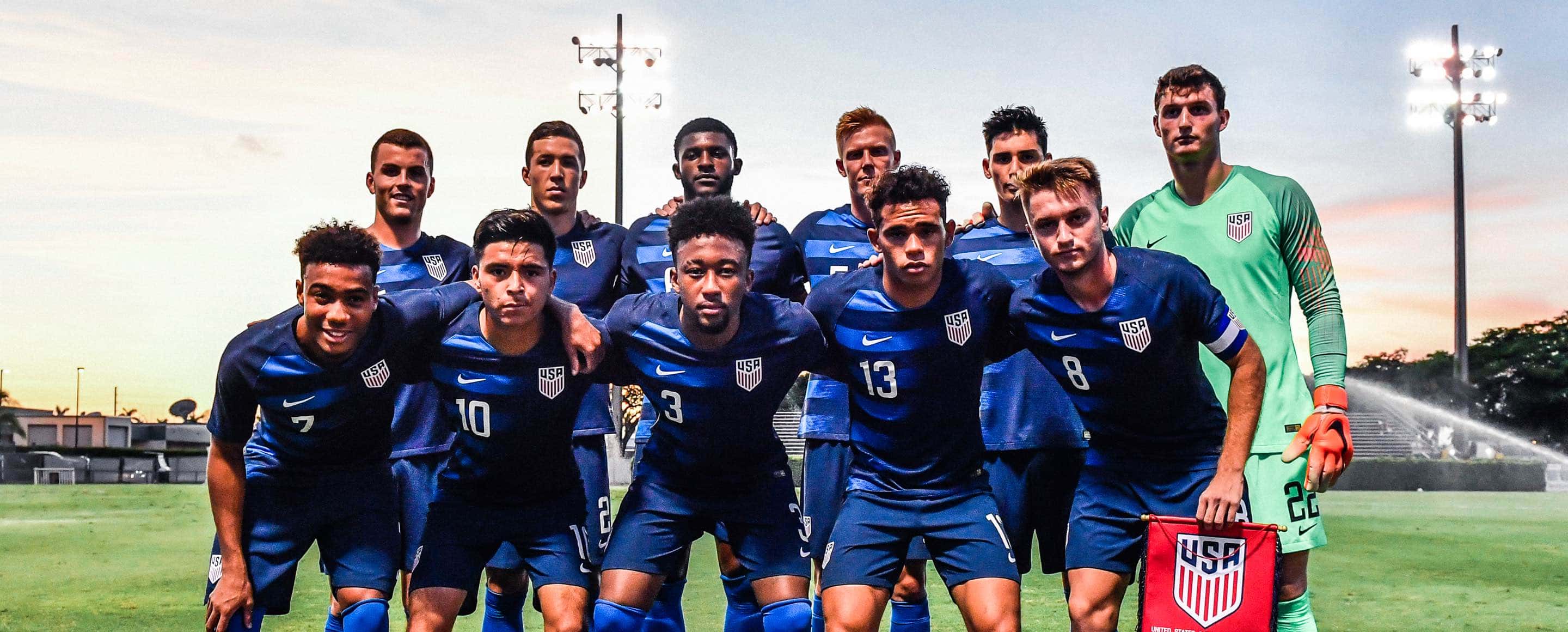
The Olympics is one of the biggest sporting events that occurs in the world. Many of us were looking forward to the 2020 Tokyo Olympics this summer, but it was announced that the Olympics would be postponed until 2021. For many athletes, this is devastating. For soccer players this is more so, especially if that player has become ineligible due to the age restriction. For FIFA, the big ticket event is the World Cup. The rules promulgated by FIFA for the Olympics make it seen almost as if the Olympics is a developmental competition where athletes not good enough to make the first team for their country could represent their nation in the Olympics and experience international competition. It was not until the 1984 Olympics where professional soccer athletes were allowed to compete for their home country.
The FIFA rules for the men’s Olympics are interesting. Even though professionals can now participate in the competition, there is still an age limit. The squad must be made up players under the age of 23 with some exceptions. The official rules state “All players participating in the preliminary and final competitions of the Tournament shall be born on or after 1 January 1997.” This is why soccer athletes such as Christiano Ronaldo or Lionel Messi technically cannot compete in the Olympic Games. However, as mentioned, there is an exception. The rules state, “However, a maximum of three male players who do not meet this age limit may also be included in the official list of players for the final competition.” This is the by-law that allows teams like Brazil to sneak superstars like Neymar onto their roster to compete for them in the Olympics. The caveat to this exception is that the over age players cannot compete in the qualifying rounds. Players such as Neymar can only begin competing in the actual tournament – i.e., the start of the group stage.
Even if a player is under 23 and therefore qualifies for the competition or is selected as one of the exceptions, there is still one more hurdle to jump over. That is whether the player’s club will allow the player to compete. Due to the fact that the Olympics are not on the official FIFA international calendar, clubs are not mandated to release the player to compete. Juventus star Paulo Dybala pleaded with Juventus to allow him to compete in the 2016 Rio Olympics, but was barred as they deemed it more valuable for him to be at the club. He was under 23 and eligible, but there was nothing that Dybala could about it.

Football Federation Australia was the first to push back on extending the age eligibility to 24. News later came out that FIFA has acquiesced to the proposal. FFA chief executive James Johnson stated, “This would ensure the players who helped their nation qualify for the games this year but might otherwise be ineligible for the tournament next year because of age restrictions, have an opportunity to fulfill their dreams of representing their country and becoming Olympians.” This is true for many of the US first team players.
14 of 16 teams have qualified already for the Tokyo Olympics with only CONCACAF, the last confederation, to finish its qualifying stage. USA has not finished qualifying as of yet and prior to the postponement, the qualifying would have continued March 20. If FIFA decided not to extend eligibility and kept the rule that players born after January 1, 2018 (the year would have been updated to be 2018 and not 2017) could only participate, barring use of an exception, then starlets like, our USA darling Christian Pulisic, would still be eligible to play for the United States and the US would not have to use one of their over 23 exceptions. However, that would not bode well for a plethora of other US under 23 starters: players like Miles Robinson, Jonathan Lewis, Jackson Yueill, Brooks Lennon, Jeremy Ebobisse, Auston Trusty, and Sebastian Saucedo, who would have seen their eligibility expire had FIFA not amended the rule. However, now those players can still chase their dream of obtaining that elusive and coveted gold medal.
Leave a Reply